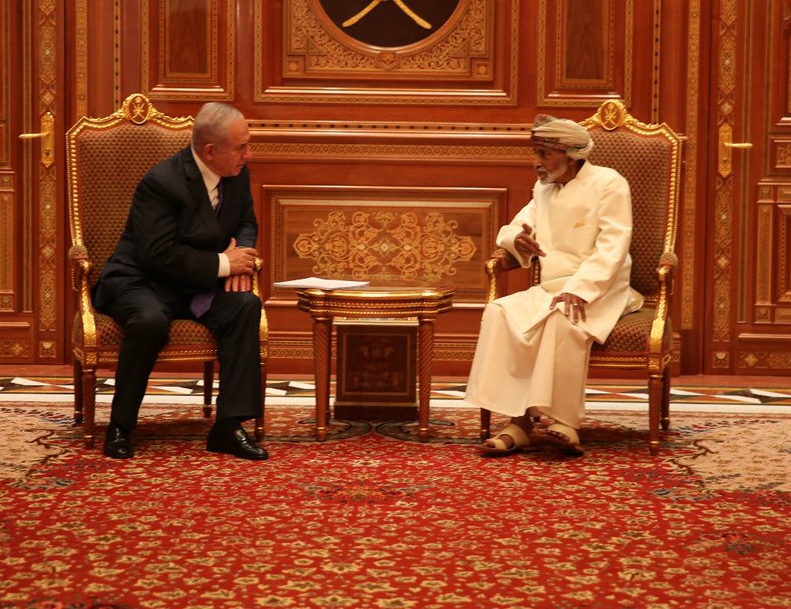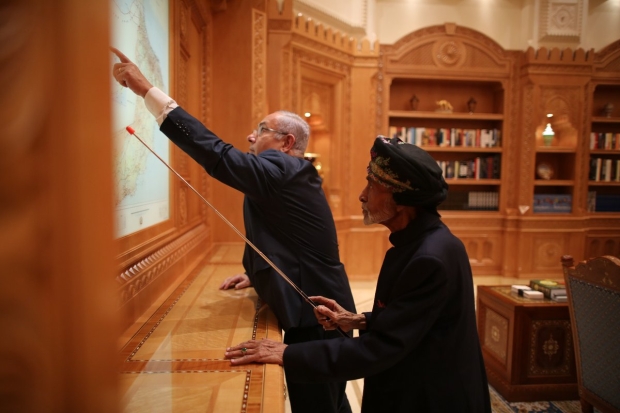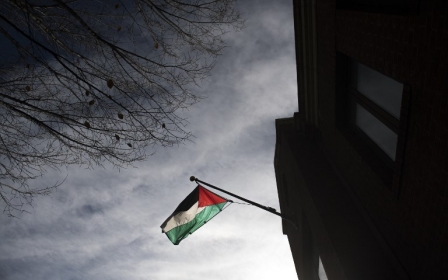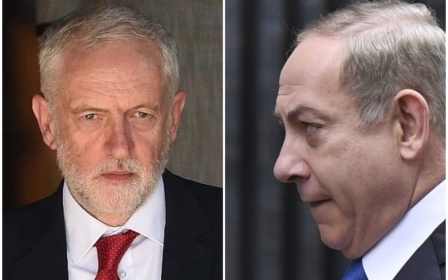Netanyahu makes surprise trip to Oman and meets with Sultan Qaboos

Israel's Prime Minister Benjamin Netanyahu has made an unpublicised trip this week to Oman, a Gulf Arab country that it has no diplomatic relations with, his office revealed on Friday.
The Israeli premier met with Oman's Sultan Qaboos bin Said, and is his country's first leader to visit the sultanate since Shimon Peres in 1996.
In recent years, Netanyahu has insisted that relations between Israel and Gulf Arab countries have been growing, without much official evidence.
None of the seven Gulf Arab countries officially recognises Israel.
Netanyahu's office revealed the visit on his return, and images of the prime minister and Sultan Qaboos meeting and shaking hands have begun to circulate.
According to the Israeli premier's office, Netanyahu travelled to Muscat at the invitation of the sultan after lengthy communications.
It called it a "significant step" towards implementing Netanyahu's policy of strengthening ties with Gulf Arab countries.
Israeli intelligence services chief Yossi Cohen, who has largely been responsible for clandestine talks with Gulf Arab governments, was seen in the travelling delegation.
The visit followed that of Palestinian President Mahmoud Abbas, who was in Oman earlier this week.
It also comes as Israel's Culture and Sports Minister Miri Regev arrived in the United Arab Emirates on Friday for the Abu Dhabi Grand Slam Judo tournament, in which the Israeli national team is competing.
The Israeli flag could fly in Qatar in the coming days if the country's athletes taking part in the World Artistic Gymnastics Championship being held in Doha do well in the competition.
Qatar had assured organisers that it would allow Israeli national symbols at the event.
Middle East Eye propose une couverture et une analyse indépendantes et incomparables du Moyen-Orient, de l’Afrique du Nord et d’autres régions du monde. Pour en savoir plus sur la reprise de ce contenu et les frais qui s’appliquent, veuillez remplir ce formulaire [en anglais]. Pour en savoir plus sur MEE, cliquez ici [en anglais].





